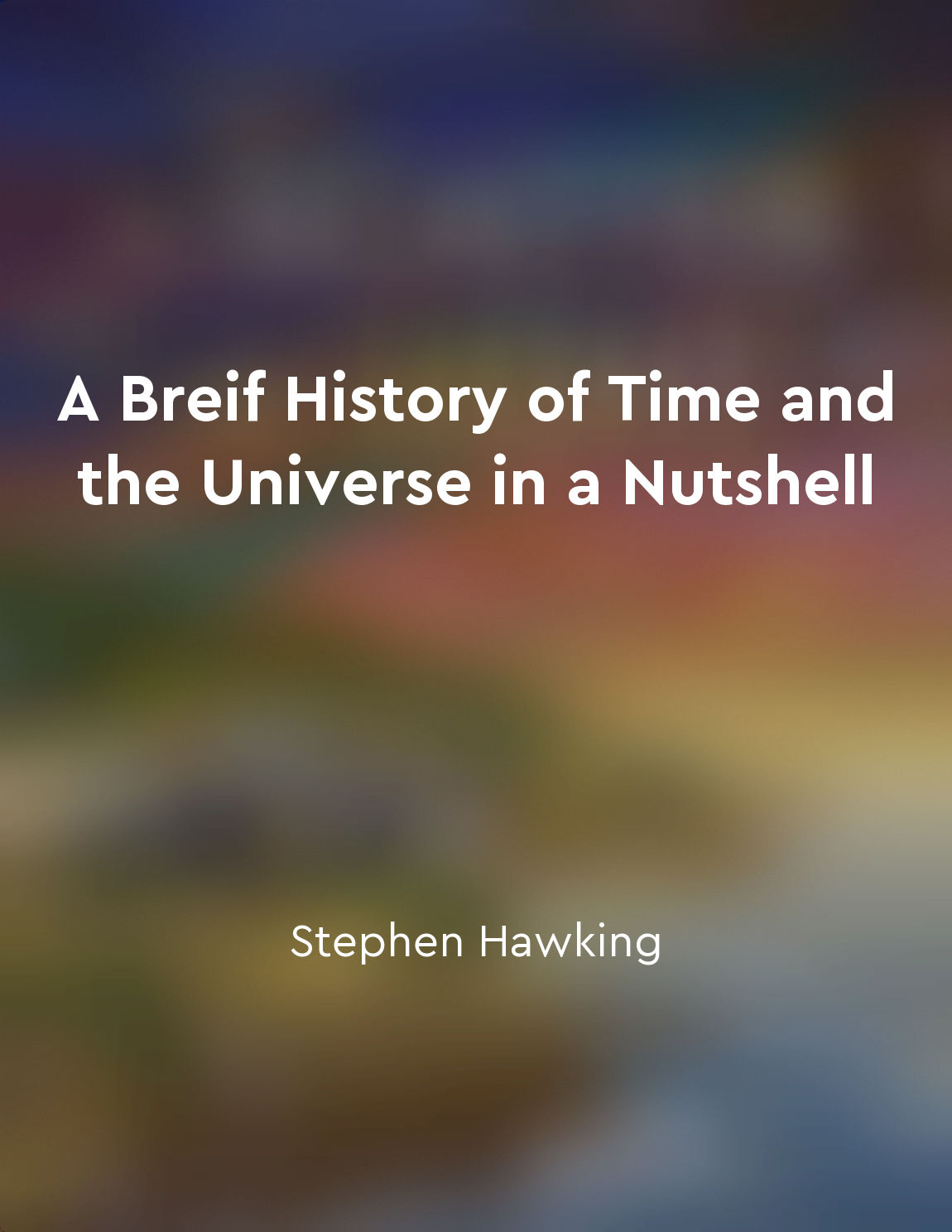Light's speed is constant from "summary" of A Breif History of Time and the Universe in a Nutshell by Stephen Hawking
In the realm of physics, one of the most fundamental principles is that the speed of light is constant. This means that light always travels at the same speed, regardless of the motion of the light source or the observer. This concept was first proposed by Albert Einstein in his theory of relativity, which revolutionized our understanding of the universe. The idea that light always moves at a constant speed may seem counterintuitive at first. After all, we are used to thinking of speed as a relative concept - something that can change depending on the frame of reference. However, Einstein's theory of relativity showed that this is not the case when it comes to light. No matter how fast an observer is moving relative to a light source, they will always measure the speed of light as being the same. This concept has far-reaching implications for our understanding of the universe. It means that the laws of physics are the same for all observers, regardless of their relative motion. It also leads to some strange and counterintuitive effects, such as time dilation and length contraction. These phenomena are a direct result of the fact that the speed of light is constant in all reference frames. The constancy of light speed has been confirmed through countless experiments and observations. Scientists have measured the speed of light in a variety of different conditions, and it has always been found to be the same - approximately 299,792,458 meters per second in a vacuum. This unchanging nature of light speed is a cornerstone of modern physics, shaping our understanding of the universe at the most fundamental level.- The concept that light's speed is constant is a central tenet of modern physics. It underpins our understanding of the universe and has led to profound insights into the nature of space, time, and motion. Einstein's theory of relativity, which first proposed this idea, has stood the test of time and continues to shape our understanding of the cosmos.


